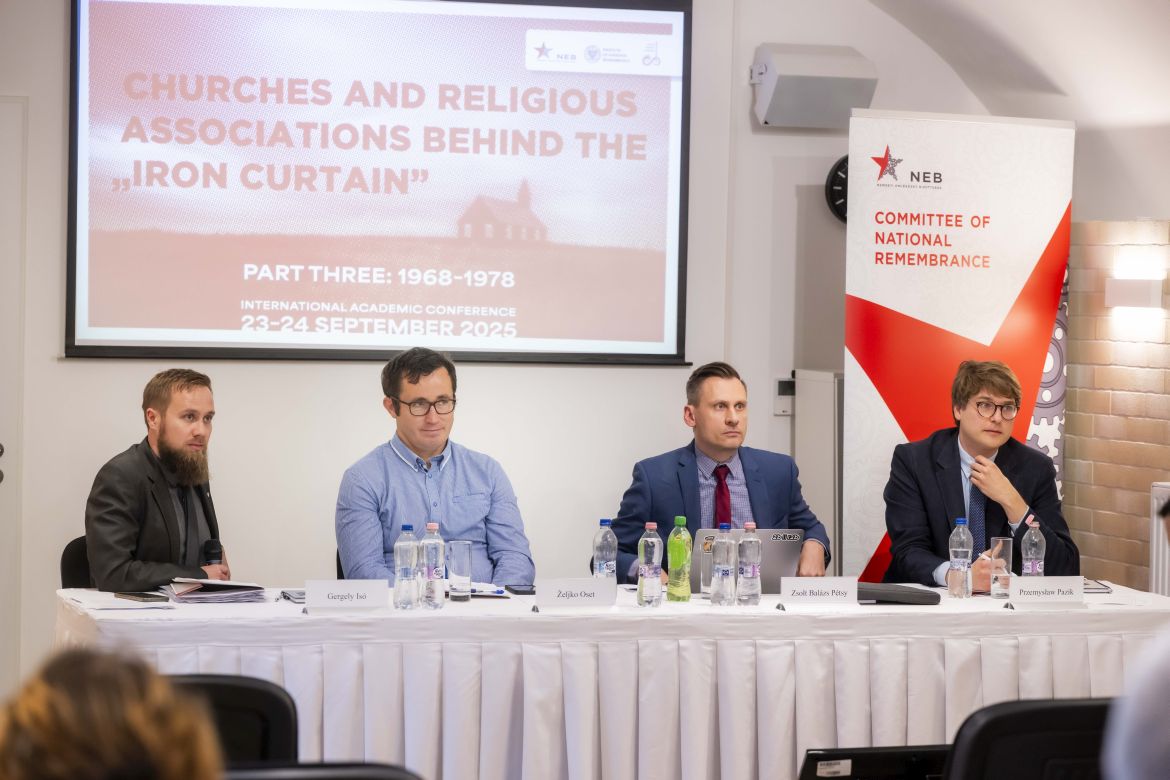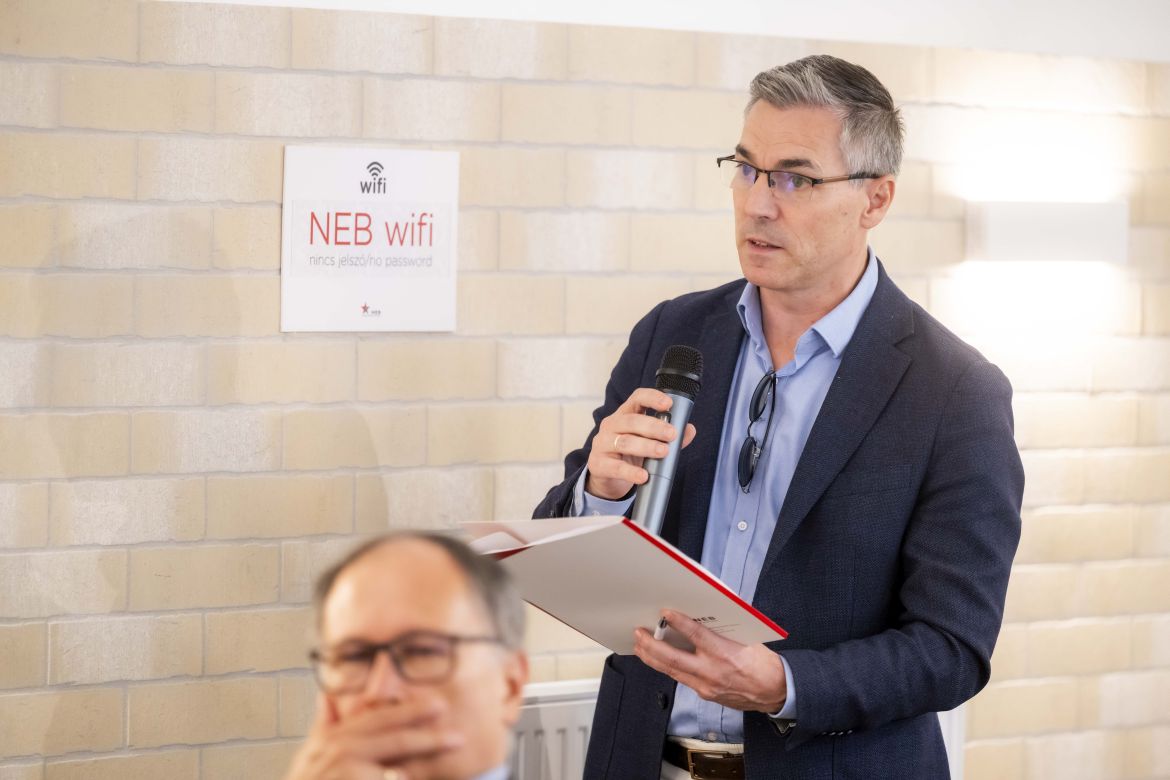With its partner institutions in Poland and Slovakia, the Committee of National Remembrance of Hungary (NEB) organized the third part of the conference series “Churches and Religious Associations Behind the ‘Iron Curtain’”.
The event, covering the period between 1968-1978 took place in Budapest on September 23-24, 2025. Three members of the ERC Negotiating Sovereignty team presented their research at the conference.
In his presentation Željko Oset analyzed priest associations in Yugoslavia as instruments of political pressure to the Catholic Church. The study provides an overview of the history of the priest associations from their establishing, their stagnation and fast decline. Dr. Oset provided an analysis of the negotiations between the episcopate, the Holy See and the state (federal republics). With the normalization process with the Holy See and the Belgrade Protocol (signed in 1966) the importance of priest associations withered.
 Source: Nemzeti Emlékezet Bizottsága (NEB-fotó)
Source: Nemzeti Emlékezet Bizottsága (NEB-fotó)
Przemysław Pazik examined how communist Poland changed its approach to the Catholic Church under Edward Gierek (1970-1980). After years of open tension, the new communist leader sought “normalization”. One aspect of the new ecclesiastical policy was holding regular meetings between state officials and clergy. These, once a tool of intimidation, were reframed as dialogues highlighting the achievements of “People’s Poland” and inviting local feedback. This strategy peaked in 1974–75 during the 30th anniversary celebrations. By encouraging priests to meet officials directly, the state bypassed bishops, hoping to build loyalty and weaken Church cohesion. The ultimate aim remained unchanged: to secularize society and reduce the Church’s influence, particularly as Cardinal Wyszyński neared retirement.
 Source: Nemzeti Emlékezet Bizottsága (NEB-fotó)
Source: Nemzeti Emlékezet Bizottsága (NEB-fotó)
The principal investigator of the Sovereignty project, András Fejérdy presented a paper on the changing bilateral relations of Hungary and the Holy See between 1971 and 1978. Fejérdy identified this period of time as a distinct, transitional phase between the resolution of the case of cardinal Mindszenty and the situation of the excommunicated "peace priests”, as well as the election of John Paul II. seven years later. Besides presenting particularities of the “short 1970s”, András Fejérdy explored continuities to the previous decade, most notably regarding the ongoing negotiations on episcopal appointments and unresolved issues from the partial agreement of 1964.
Follow the activities of the research group on their website and Facebook profile.



